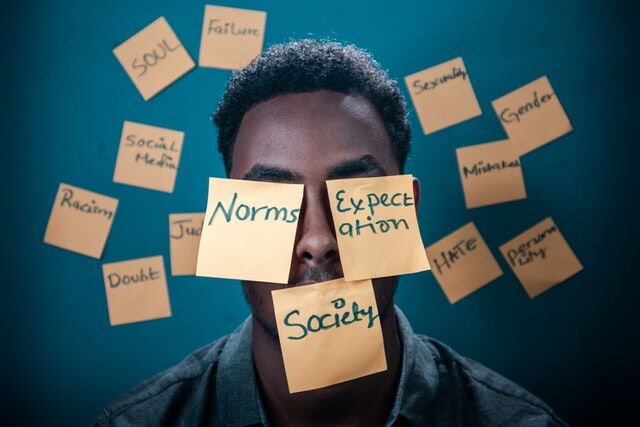A discussion on gender stereotypes with Ruxandra Marcu
There is a focus on how gender stereotypes, expectations and norms can be harmful to individuals within society.
March 15, 2021
Ruxandra Marcu, director of the Margaret Sloss Center for Women and Gender Equity, said the gender stereotypes in our society are harmful in more ways than one.
“I personally think that gender stereotypes are really harmful because they inherently say because you’re this you have to act, look and be a certain way. It’s inherently limiting,” Marcu said.
According to Marcu, gender stereotypes can be defined as the way people should look, act, be, think or feel based on the gender that society perceives them to hold. She also said these stereotypes are impacted by the culture and time period we live in.
Marcu said the easiest way to see an active gender stereotype is by walking into your local department store’s clothing section. Marcu said not only are the boys’ and girls’ clothes very different in color schemes and graphics, but the way the store is organized is an example of a long-held gender stereotype.
“…. Just in the way that everything is organized in all of the physical spaces that we’re in that are constantly sending us a signal and clue as to what one should look like or behave like based on that gender identity,” Marcu said.
Marcu also said having girls and boys-only clothing sections in stores reinforces the gender binary.
“These stereotypes we have are framed all around the binary. They uphold it in that they perpetuate this idea that there are just these two genders and they are like this and like that,” Marcu said.
According to Marcu, the whole world works according to some sort of binary. For example, Marcu said when comparing two things, it is either black or white. Other examples are on and off switches and the saying “this or that.”
Marcu said this system of the world being based around binaries is especially harmful to trans and nonbinary individuals.
“Because of the way we have focused on gender being a binary, we don’t really have a lot of language and discourse on anything outside of that,” Marcu said. “…We haven’t quite developed gender stereotypes around nonbinary or trans people because they’ve just been erased from existence all this time.”
When asked where the gender binary and modern gender stereotypes stem from, Marcu said it is a way to make sense of the ever-changing and chaotic world we live in.
“Our brains always try to make sense of the ever-changing world around us, and gender, just like age or race or ethnicity or ability, all of those things are categories that we can sort of use to sort of make sense of chaos, to organize people, to organize organizations and institutions, to put things into neat labels,” Marcu said.
Marcu said while it is human nature to want to make sense of the world, using gender stereotypes to achieve this can be rigid and limiting.
“Gender categories have always been around and the way gender is used as a category has shifted over time, but for more parts than not, gender has been used to limit and oppress,” Marcu said.
But, according to Marcu, breaking these long-held gender stereotypes is possible, it will just take time. Marcu said the first step in breaking these stereotypes is by unlearning what people have been socialized to see things as. According to Marcu, people need to train their brains to think critically about how we perceive gender.
Marcu said not only will this allow freedom to individuals who identify as trans or nonbinary, but to people of all gender identities.
“I think most people will find it liberating and freeing to stop thinking in terms of a binary or in terms of gender stereotypes,” Marcu said.
Marcu also said while she might not be able to see this progress happen in her lifetime, she has hope that in the future her children will be able to experience a world not framed around binaries and stereotypes.
“If we just had a general understanding that people can be who they are regardless of their gender identity, we would have a healthier culture,” Marcu said.







